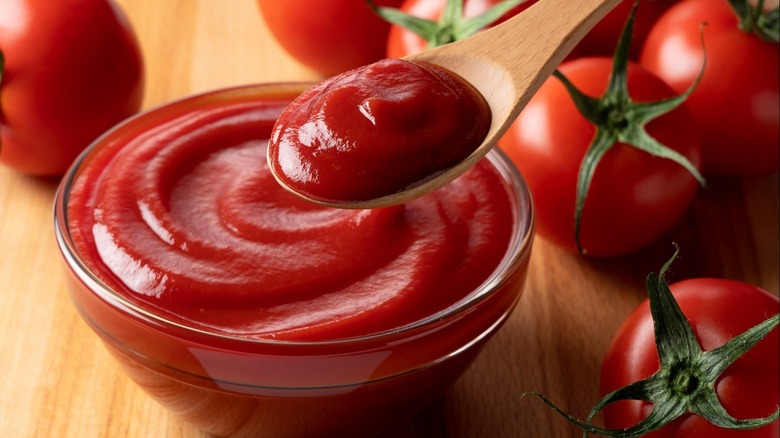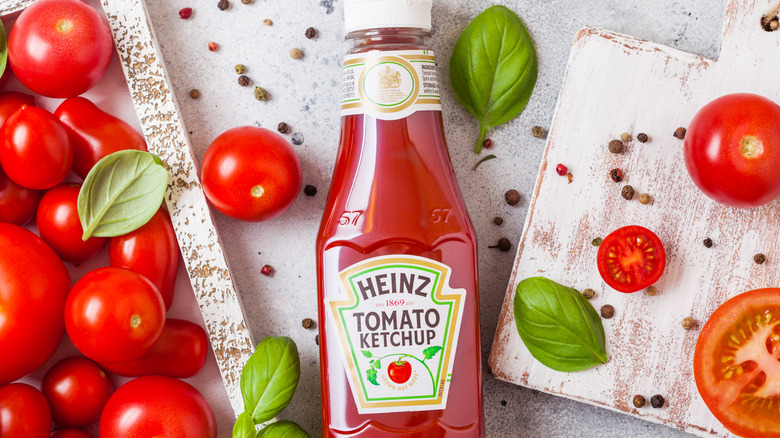The Shocking Origins Of Ketchup
Ketchup is a staple condiment of the American fridge, and you can find it in nearly all restaurants across the country. Slather it onto seasoned scrambled eggs, plunge crispy fries into it, drizzle it onto a hot dog, or mix it into a tasty casserole to enjoy this salty-sweet kitchen essential any way you like. Have you ever looked at Heinz ketchup label and wondered why it specifies the product as "tomato" ketchup? You may be surprised to learn that the condiment you know and love was not originally made from tomatoes, and there are actually many types of ketchup that have been concocted throughout its history.
The tomato ketchup we're familiar with today was first developed by Philadelphia scientist James Mease in 1812, who created the original recipe. He felt that the very best ketchup came from tomatoes, which were called "love apples" back then because they were thought to be an aphrodisiac (via History). When Heinz perfected the recipe and began mass-producing it in 1876, it quickly climbed the rank and is the most widely sold ketchup brand in the world. But when we turn back the clock, we uncover some curious history about the true origins of ketchup that is rather fishy.
The earliest ketchup recipes had no tomatoes
There you have it. Ketchup was first a fermented fish sauce that dates back to 17th century imperial China, with no tomatoes in sight. Traders brought the sauce to British sailors who desperately needed a way to make their very basic rations somehow taste good (per Smithsonian Magazine). In doing so, ketchup spread throughout Britain as the English took the recipe and ran with it, using it to create their own ketchup variations like mushroom ketchup. Yep, that was a thing.
The ancient Greeks also provided records of using decaying fish as a form of seasoning, which they called "garos." The Romans followed suit and brought their version of this fancy fish sauce wherever they roamed, spreading the umami deliciousness to many other parts of the world (via Gastropod).
It was only after much experimentation and fine-tuning that the beloved condiment became a huge success in the States, and of course, once alcohol in ketchup was no longer called for in the recipe. Heinz played a key role in promoting clean, hygienic environments for food processing within his factories and pioneered the use of glass bottles for easy quality checks. Now Heinz tomato ketchup is the go-to if your meal is in need of a sweet and savory boost of flavor.

